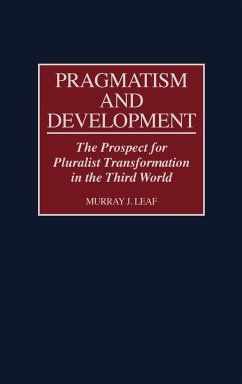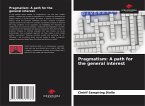While European reconstruction after World War II followed the pluralistic Marshall Plan that grounded social order in individual interests and interdependence, the roots of dirigiste planning in South Asia, as in the rest of the Third World, lie mainly in the line of deterministic theories represented by Positivism and Marxism. Despite a national commitment to dirigiste planning, however, India retains substantial interstitial pluralism-pluralism within an overall centralized system-that varies from state to state. This variation is directly reflected in interstate variations in development success. Pragmatic theory, such as that underlying the Marshall Plan, is committed to seeing indigenous thought in its own terms and provides a far more comprehensive analysis of Indian social realities. This study establishes the continuing viability and practicality of the pluralist alternative and identifies what must be done to convert a centralized system to a pluralistic one.
Hinweis: Dieser Artikel kann nur an eine deutsche Lieferadresse ausgeliefert werden.
Hinweis: Dieser Artikel kann nur an eine deutsche Lieferadresse ausgeliefert werden.








